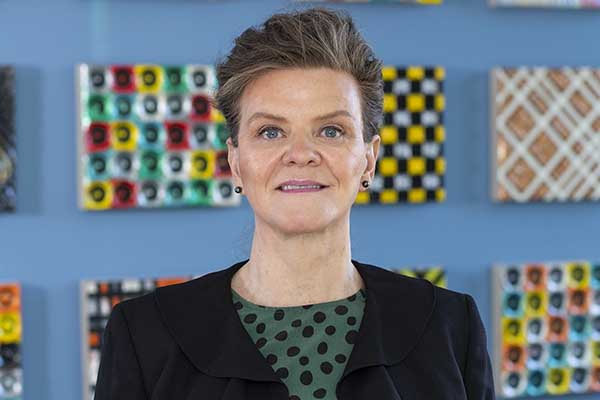
Catrine Tudor-Locke, dean of the College of Health and Human Services, is among the University’s newest academic leaders. She arrived in fall 2019 from the University of Massachusetts Amherst, where she was associate dean for research and administration for the School of Public Health and Sciences
With impressive credentials and a fresh perspective to coincide with the energy generated by the arrival of a new chancellor, Tudor-Locke is one of several new dynamic leaders who is eager to apply her expertise to the opportunities facing CHHS and lessons learned from the current global pandemic to future of higher education.
What is it about UNC Charlotte that interested you in pursuing a position of leadership?
Like many UNC Charlotte students and alumni, I was a first-generation, low-income student, so UNC Charlotte’s commitment to diversity, inclusion and equity speaks directly to me. I lost both my parents by the time I turned 23 and had to chart a life path forward on my own. I am where I am today because of so many people who supported me every step of the way. I am excited about the opportunity to give back and help other students achieve their education, career and life goals.
Considering the University’s research potential, in what areas do you see research growing? How important are community partners to this endeavor?
UNC Charlotte is poised to ascend to R1 doctoral university classification with very high research activity. Our researchers are already pushing their respective fields forward. Our community partners, which include regional public health and social service units, hospitals and clinics, non-governmental agencies and corporations, are working with us to address knowledge gaps and opportunities through collaborative research.
What are the near-term priorities for your college?
Based on listening sessions and a stakeholder retreat that I led during my first year, top goals for CHHS are to expand several priorities in regard to partnerships and collaborations in teaching, research and community engagement; human, space, equipment and financial resources. We also will enhance our commitment to diversity, equity and inclusion through action.
The circumstances of 2020 have changed the landscape of higher education. What is the value proposition for students?
In many ways, the pandemic and the swift pivot to remote learning accelerated a trend toward enhancing pedagogy with various technologies. It pushed our professors and our students to quickly acquire, practice, and ultimately, master new interpersonal skills necessary to successfully navigate the virtual space. For students, these newly honed presentation and collaboration skills will translate very well to the workplace. But the greater life lessons that our students benefited from this year by being part of the UNC Charlotte community during this challenging time include cooperation, experimentation, ingenuity, advocacy, solidarity and resilience.
What will higher education look like on the other side of this; how should the industry prepare?
2020 shook us loose from some traditions and allowed us to think creatively in response to new necessities. We now have the opportunity to leverage these new experiences and evolve. There will doubtless be a continued focus on equity and outcomes. We will be re-examining our policies and procedures and questioning their impacts, so data will become increasingly important to guiding the actions that will be expected. There will be increased emphasis on career preparedness, including expanding opportunities for project-based learning, internships, co-operative education programs and other work experiences. This emphasis will require more expansive and closer interactions with community and corporate partners as we develop the infrastructure to support important training pipelines that include, but extend well beyond, the undergraduate experience.